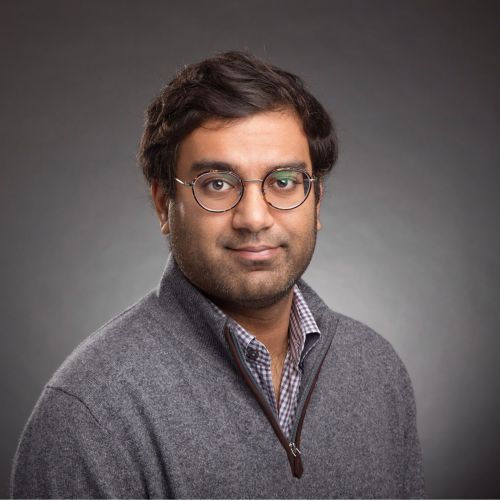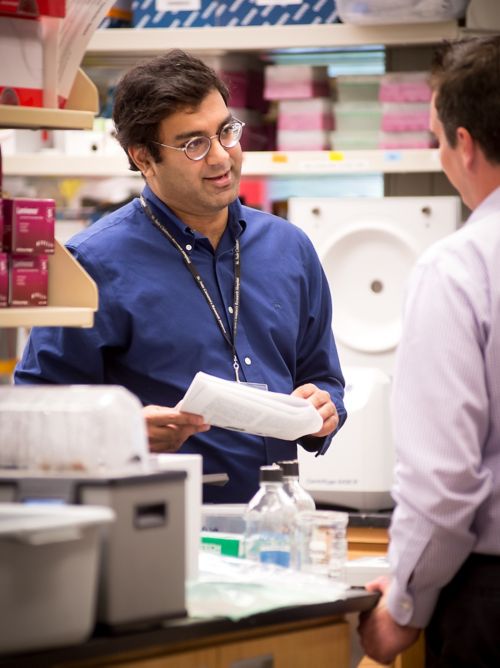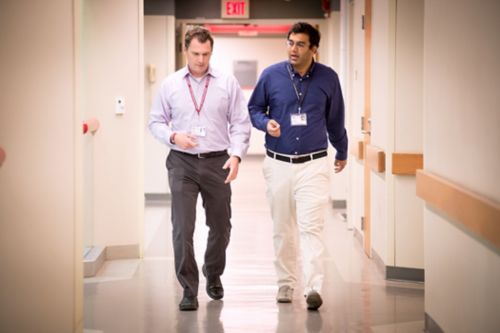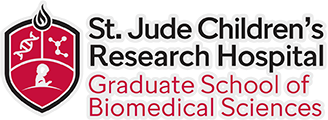
Rahul Kumar
PhD Student, St. Jude Graduate School
Welcome to graduate school. Your path toward a PhD in biomedical or life sciences marks your transformation from almost two decades' worth of answering instructors’ questions and following syllabi to embracing the unknown and forging your own path. You will become your own teacher, relying on the support and criticisms of your peers, faculty, and the scientific community.
Most graduate programs design the first year to prepare students for several more years of independent research. Such programs include coursework and lab rotations, as well as seminars, conferences, and meetings that are not as “extracurricular” as they might seem. These activities help to propel you into the trenches of science while exposing you to a variety of research areas and approaches.
Having recently completed my first year as a PhD student at the St. Jude Children’s Research Hospital Graduate School of Biomedical Sciences, I can share with you some coping skills and strategies for a productive and rewarding graduate school experience.
1. Sharpen your analytical tools
Successful scientific research hinges on critical thinking and problem solving. Every researcher needs to adapt these general traits into a specialized, professional toolkit. Here are a few examples:
- Unpack and question the logic behind a scientific argument
- Transplant experimental reasoning from one project or field to another
- Design robust, feasible, and fundable projects
- Collect data and understand its limitations
- Present your ideas and results effectively
These analytical skills can never be perfected, and continued success requires intensive reflection and unending requests for critical feedback. Rather than focusing on minutiae and memorizing facts, learn the subtle intricacies of thought that scientists spend decades refining. Ideally, you should leave every lecture with some deeper understanding that could never be found in a textbook.
2. Curiosity unchained drives progress

Yale biologist Stephen Stearns tells his new arrivals to “read and think widely and exhaustively for a year” because the nurturing of intellectual curiosity eventually yields new ideas for science.
- Immerse yourself in the primary literature in your field while reading anything and everything that seems interesting.
- If you have already decided on a field of research, there is still much to be gained by exposing yourself to a seemingly unrelated field.
- Discuss interesting concepts with your peers and engage in journal clubs.
As you begin to push your own frontier, pay attention to what piques the curiosity of your professors:
- Try to understand the larger scope of their efforts rather than zeroing in on a noteworthy project.
- Read their published work with an eye towards the evolution of ideas and approaches while framing their and others’ work in the larger context of their field.
- Ask what they are thinking and where the field is going. There is no glory or utility in achieving a result without thinking about what’s next.
3. Reframe failure and embrace opportunity
Harvey Cushing, father of modern neurosurgery, said, “The capacity of man himself is only revealed when, under stress and responsibility, he breaks through his educational shell, and he may then be a splendid surprise to himself no less than to his teachers.”
Science involves failure, and dealing with setbacks is crucial for your success and general sanity. You will learn to reframe your definition of failure in the context of opportunity:
- Failed experiments and even incorrect hypotheses are opportunities to learn.
- A long stint of work that produces only negative data ought not be written off as failure. Every observation—by definition—yields information.
As a budding scientist working under the aegis of a faculty mentor, you have the unique chance to strike out in unexplored directions. Asking profound and fundamental questions early in research careers has formed the academic backbone of many future Nobel laureates.
- Keep an eye out for the unexplained: data or observations that were previously discounted as anomalous or unimportant.
- Harness your drive and your curiosity to push through the limitations of conventional approaches and techniques.

4. Moving forward: selecting your lab
After the first year, most of your time in graduate school will be spent in your lab. Choosing the “perfect” lab might seem like the most important task of your first year. Personally, I doubt that such an ideal exists. Many students arrive with strong interests in specific areas, but keep an open mind as you review your lab options:
- Explore areas that might be new or unfamiliar.
- Pick a lab where the science itself cultivates an insatiable curiosity.
- Seek out mentors and discuss where their science is heading and what part you would like to play.
In your lab rotations, you will not only immerse yourself in the study of specific fields, you will also be studying the labs themselves. Consider the thousands of hours you will spend with your mentor, not to mention with other lab members and the micro-culture they have formed:
- Keep in mind that the lab’s composition will likely change during your tenure there.
- Assess the management style of your mentor and the lab’s atmosphere.
- Join a lab where you will be productive, challenged (in good ways), and happy.
5. Isolate variables, not yourself
The unstructured, sink-or-swim nature of graduate programs can tilt a student into clinical levels of anxiety or self-doubt. Despite the importance of independent learning and academic self-reliance, remember that you are not in this alone:
- Your peers have had or will have the same frustrations, setbacks, and concerns.
- Do not isolate yourself, but stay in regular and close contact with your fellow students and your advisor.
- You will find common joy in progress and successes.
- Take care of your health, both mind and body, and work hard together.
“There is an old saying that interest does not bind men together: interest separates men; there is only one thing that can effectively bind people, and that is a common devotion.” — Harvey Cushing, MD (Consecratio Medici, 1926)
Rahul Kumar is a PhD student at the St. Jude Children's Research Hospital Graduate School of Biomedical Sciences and a medical student at the University of Tennessee. He holds a BA in biochemistry and biophysics and an MS in physics from the University of Pennsylvania and is pursuing neurobiology research at St. Jude with the Northcott Lab.

